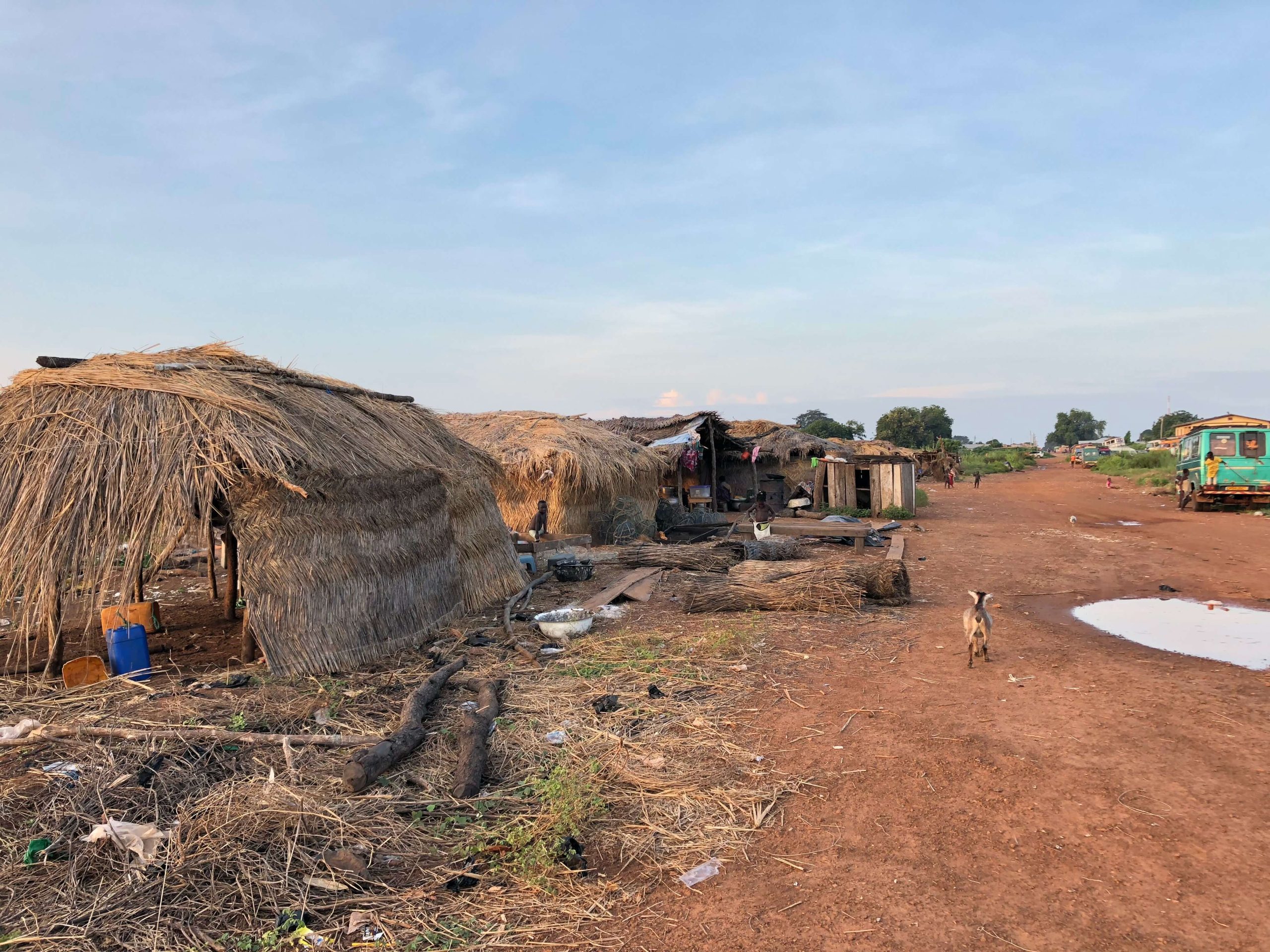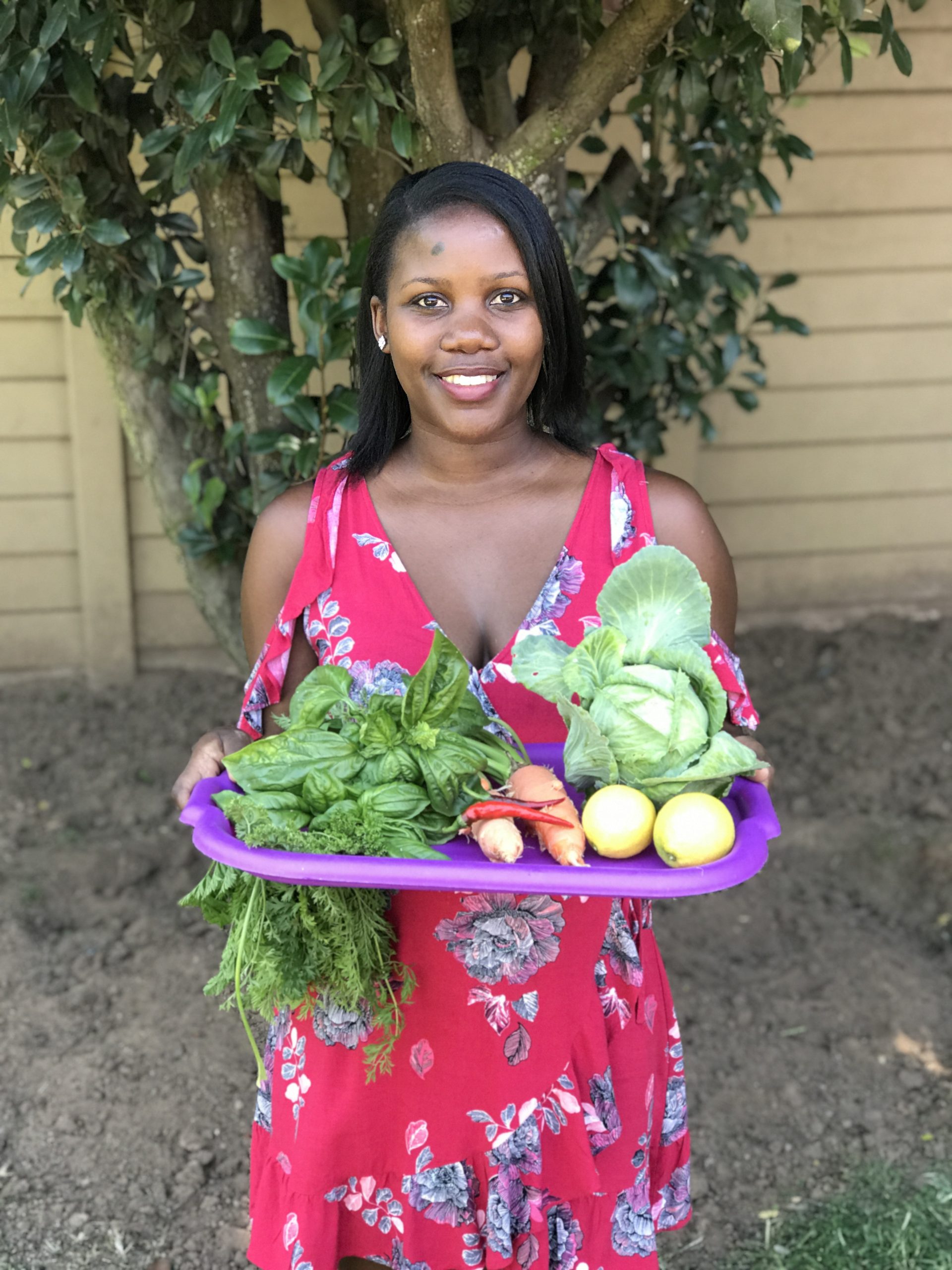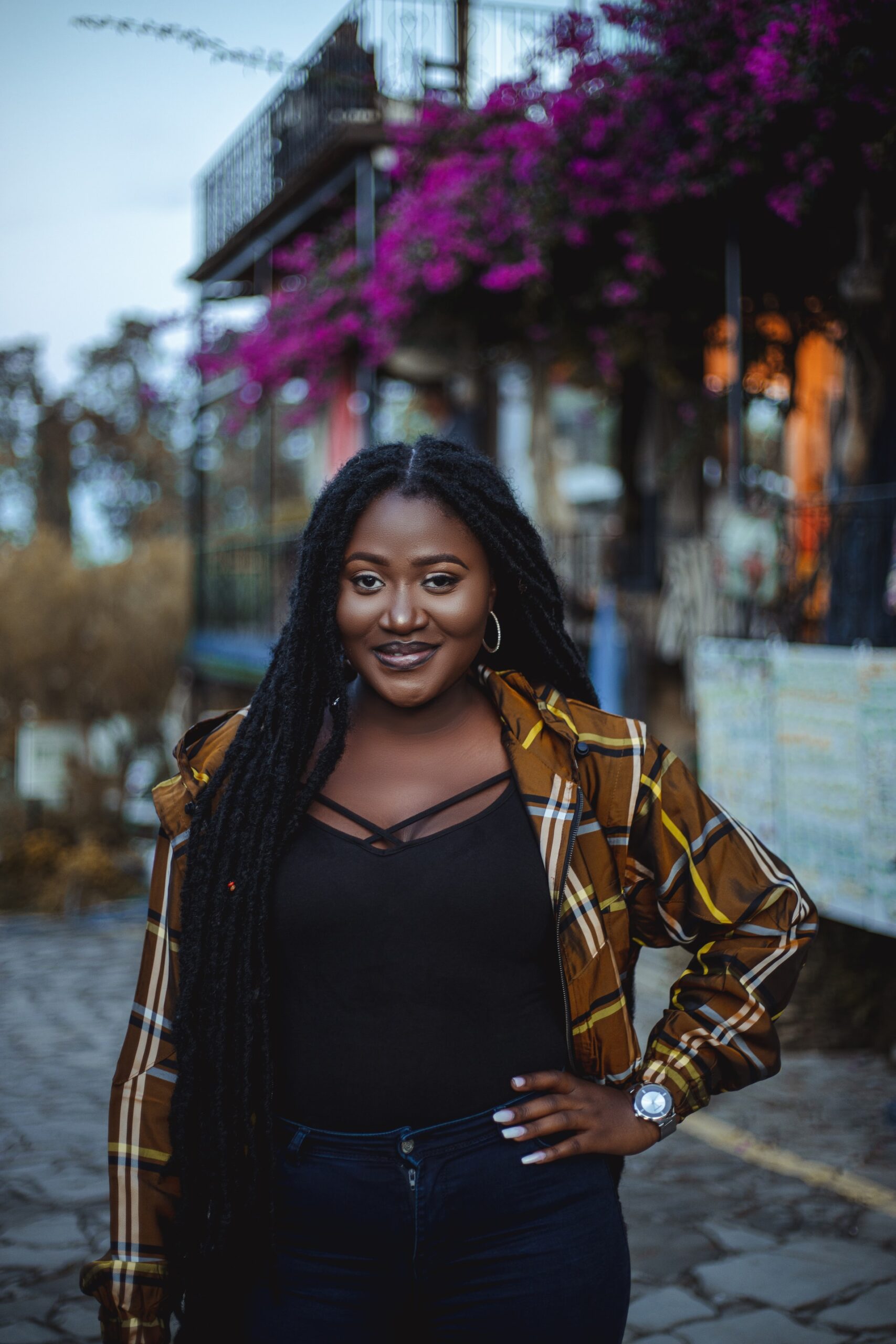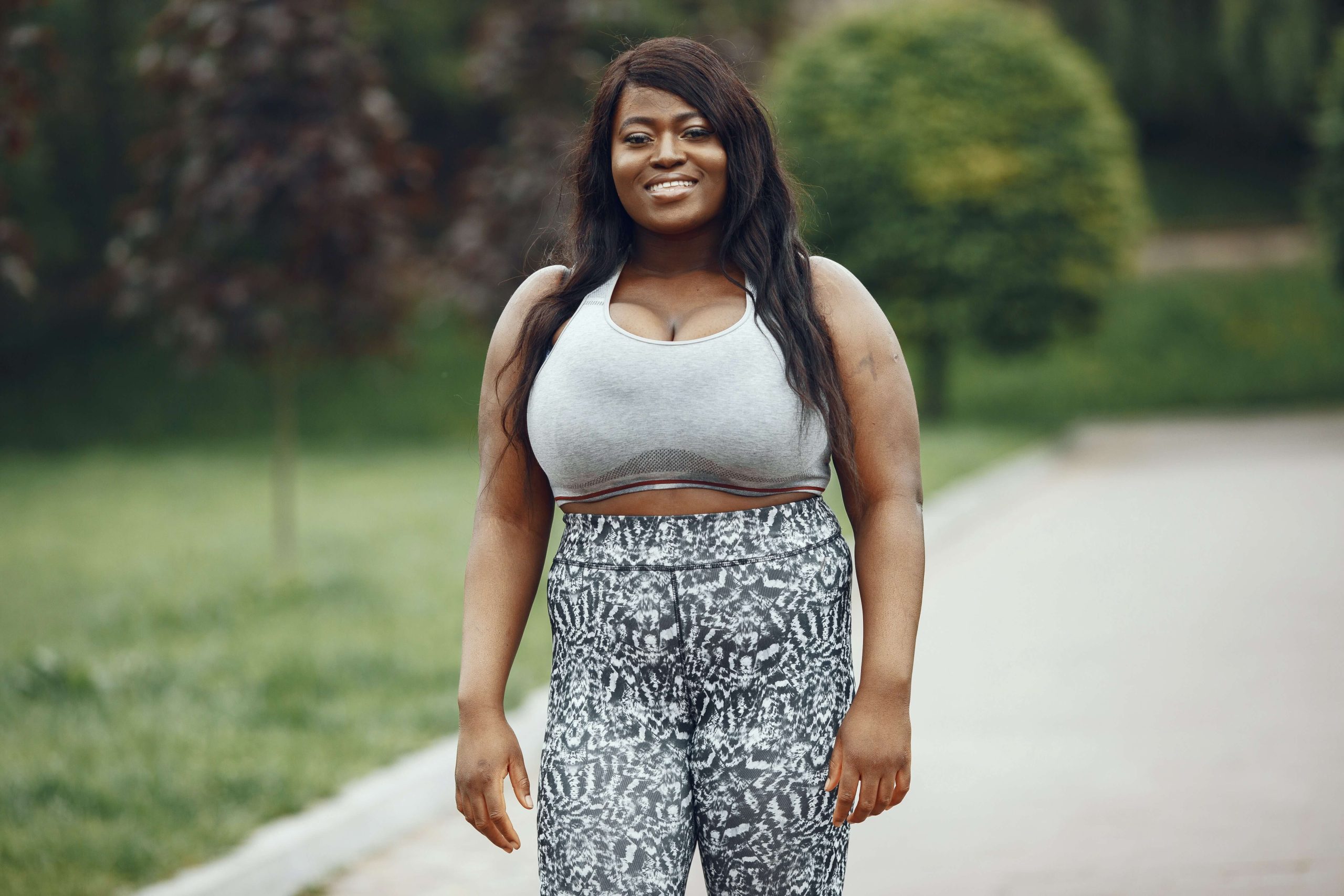Diary of a Village Girl: Creating Hope in my Community
I have always had the urge to go back home to Malawi and be part of the builders of my community and the country at large. Though born and raised in Zimbabwe by Malawian parents, my love for Malawi developed when I arrived there in 2004, still a child yet old enough to know good from the bad.
I instantly fell in love with an odd way of life in my parents' villages, both my mother's and father's sides. I fell in love with the country's innocence, the people oblivious of a life other than their way of living. Indeed, ignorance sometimes is bliss. I was raised, in my view, in an average home with running water, a bathtub, electricity, a stove, a fridge, and sleeping on a bed. I naively thought that this lifestyle was a common way of life for everyone everywhere across the world. Sleeping on a mukeka or African mat in my parent's village in Malawi was not a shock but a roller-coaster adventure for me. Fetching water was the most exhilarating experience. Carrying tons of buckets with my cousins and brothers, contrary to our small family way back in Zimbabwe, I was faced with many cousins in Malawi, an unfamiliar sight, but it was such a pleasure. We would take turns swinging the borehole wheel until we filled all the buckets.
Cooking was quite exciting, and mealtime was beyond enjoyable. We sat amidst more than 20 people near the kitchen, chit-chatting while we waited for the food to be served. We had to sit in groups, males separate from females. Just as the mothers comprised their separate group, so did the children. Each group had to be served from a communal dish according to their gender and age.
After three months of this pleasurable village experience, my father took me back to Zimbabwe. I vowed in my heart that I would return. Years later, the nudge to return to Malawi was still stirring in me. In 2014, a mature woman, I decided to relocate and work in Malawi. By then, I understood that some of the first pleasant experiences I had encountered resulted from lack and poverty. I worked in Malawi for eight months, only to be so disappointed by the new experiences of hardships. The people and the country were going through tough times due to poor governance and political misalignment. At that time, I did not find anything pleasant about my country, so I left despite my inward-burning desire to help.
Subsequently, in 2021, I mentally prepared myself for disappointment and discomfort. I went to live in Tukombo, my parent's village in Malawi's Northern region. This village comprises of Tonga-speaking people, one of the tribes that pioneered multi-party rule through Aleke Banda and are also known to be the most intelligent and educated tribe in Malawi.
I realised that my community needed help urgently. So, I contacted the Traditional Authority (TA) of the land to help and found out which areas needed immediate attention. To my shock, I was given a Bible of needs, and with no financial resources, I felt helpless and hopeless. However, although hopeless, I was confident that I could reach out to some of my trusted and valued friends with whom I had built trustful relationships over the years based on our common interests, spiritual foundation, or vision of building the Africa we want. It is an Africa with a prosperous future for the present and future generations.
I embarked on a solo journey of knocking on every one of my friend's doors for financial assistance, hoping to have a good response. Indeed, most of my friends fell head over heels without hesitation in extending their financial resources in helping to build my village while building the Africa we want, one village at a time. Yes, there have been a few exceptions whereby I had some emotional wrecking experiences. Some potential donors I approached thought that I shouldn't be "appealing" for financial assistance at this stage in my life and that I was a failure and an embarrassment to society. Therefore, I should have never reached out to them or shared the philanthropic request work I was doing. Nevertheless, through various resources and help from friends, we have managed to renovate the village court/office, helped construct a nursery block, bought chairs for the community court and distributed food parcels and clothes to the community. Once the news started reaching out to some of the people in the diaspora who shared the same passion for building or facelifting the community, the response to contribute multiplied tremendously. Many reached out to me and expressed their commitment to joining hands to improve the village.
I partnered with my fellow brothers and sisters from Tukombo, mainly based outside the country, to extend the existing clinic into a hospital. Each person would contribute as little as US$6. With all this being done with a couple of close friends, the most mind-boggling question comes to mind: How does the government of Malawi fail to deliver on the smallest of services when a small group of friends can bring change within a couple of months? Where does our government fail in service delivery? What are the priorities in the national expenditure, and what should they be?
Meanwhile, Tukombo village has diverse so-called development committees that convene countless meetings, with little or no tangible deliverables on the ground. Is it because of a lack of focus on the bigger picture regarding vision, genuine sense of duty, unity for purpose, or unity of purpose? Could this be attributed to a lack of a shared mindset, education, drive or enthusiasm to live well in Malawi?
Unfortunately, despite the continent's immense potential, there are similar heart-wrenching cases across Africa. The abovementioned drawbacks pose unsurmountable obstacles to true meaningful emancipation and economic freedom. But we must face these challenges and forge a more livable and prosperous Africa. Our experience in Tukumbo village must help us to create a hopeful community with successful tangible development goals.
Written by:
Cathrine Banda, Community Activist
Tukombo Village, Nkhatabay, Malawi
Mobile: +265 881 69 30 58
Email: cathrinetwabi@gmail.com
A HOUSE IS NOT A HOME WITHOUT A GARDEN
My name is Noma, and I am a self-made home gardener. My goal is to inspire as many people as possible to start their own home gardens so that they can eat and live healthier lives.
When I first started gardening, I never imagined how big of a role it would play in my life. Gardening positively changed my physical, mental, and emotional well-being. Before embarking on my gardening journey, I used to worship junk food! Meals containing greasy, spicy and filling foods were my go-to meals. Soon enough, Irritable bowel syndrome (IBS) caught up with me when the doctor asked – do you eat vegetables?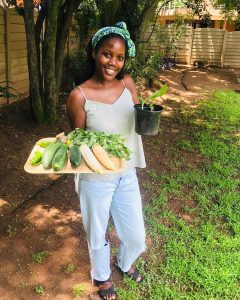
The truth was, I only ate vegetables when I had to. In fact, even if I bought vegetables, they would stay in the fridge until they would go bad, which gave me the perfect excuse to throw them away. At this point, I knew something had to change, and I knew that I had to make that change.
And so, my gardening journey began five years ago when hubby and I moved into our first house and decided that a house is not a home without a garden. This way of thinking was also the best way for me to eat more veggies because once you’ve laboured to grow your own veggies, it just hurts too much to see them go to waste.
The first two years of gardening were a joke because we both grew up with parents who loved gardening. However, we had zero gardening experience and didn’t know where to start. But we had to start somewhere. So, we sliced a store-bought tomato and put it in the ground, along with a few sweet potatoes. The tomatoes sprouted up surprisingly fast, and soon enough, we harvested a handful of happiness. But the sweet potatoes, on the other hand, didn’t give us much when we pulled out the plants. So then, hubby and I decided to put gardening on hold to focus on having our baby boys.
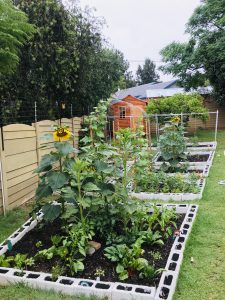 In 2019 I was done with the babies and ready to go back into gardening. But because we neglected our garden for so long, it was covered in grass. We then decided to dig it all out and start the garden all over again. As soon as we started digging, we were greeted with a pleasant surprise of sweet potatoes! Lots and lots of them! For me, this was an undeniable sign that I was meant to use this space for gardening. And that’s how @GardentoPot was born. First on Instagram, and now, we are blowing up on TikTok. As I’m learning to grow, I’m also learning to cook healthier, and that’s the type of content I share on my social media platforms. My boys are also learning to love the garden, from sowing seeds to harvesting and eating carrots.
In 2019 I was done with the babies and ready to go back into gardening. But because we neglected our garden for so long, it was covered in grass. We then decided to dig it all out and start the garden all over again. As soon as we started digging, we were greeted with a pleasant surprise of sweet potatoes! Lots and lots of them! For me, this was an undeniable sign that I was meant to use this space for gardening. And that’s how @GardentoPot was born. First on Instagram, and now, we are blowing up on TikTok. As I’m learning to grow, I’m also learning to cook healthier, and that’s the type of content I share on my social media platforms. My boys are also learning to love the garden, from sowing seeds to harvesting and eating carrots. 
I am truly humbled and honoured by how everyone has received my content. Now I see that there is a real need for people to be able to grow their own nutritious food with no harmful chemicals. Today my garden is my therapy, it teaches me about how life & nature work together. My garden is also my purpose, it helps me inspire others to garden and to take control of their nutrition.
Siphiwe Sithole tells us about the idea that transformed her life
That I would become a farmer was just not on the radar. I did not see this coming. I trained as a journalist at Rhodes university and went on to do a postgraduate diploma in advertising and marketing. After that, I worked in different marketing and public relations positions for corporations and organisations.
In 2015, The Tony Elumelu Foundation accepted me to participate in their Entrepreneurship programme. I had an idea to grow food for African ex-pats living in South Africa. I understood that most people migrating are at the bottom of the pyramid. They are moving from one country to another for economic reasons. When they get into that country, they have to scramble for food. They don't have money to buy groceries for the whole month. They're literally looking for food on a daily basis. They are looking for fruit and vegetables they cannot get.
I come from Mpumalanga, close to the Mozambican border. When I lived in Cape Town I couldn't find things like cassava. Each time I would go to the neighbourhood market, I just could not find the stuff that I could relate to. The demographics of the country have changed. The demographics of certain regions have changed and yet what has not changed is what you are finding on our shelves.
African Marmalade is an African farming business that grows indigenous crops. We started it in late 2015 with the intention of growing food. When I went into business, I thought that, as a top performer in the corporate world, I would be able to hit a profit in six months, but it just took longer. The reality of climate change confronted me; I just did not have the way or reserves to deal with that as a farmer. Being self-funded was pretty tough. I was very cautious. I did not want to make loans to run the business. I had to drastically lower my standard of living. I could no longer maintain the same lifestyle that I had while I was working. 
Sometimes I struggle to even imagine my life before me going into farming. I keep saying, guys, 'What did I use to do? What was I doing on weekends? Because right now I'm happiest when I'm out in the field while before, you know, I would've been, oh, I've gotta go to the mall. I've gotta go to the salon.
Growing indigenous foods, I looked like a lunatic because I was doing something people didn't know. Whatever I planted, people came from the agricultural department, and they wouldn't understand why I didn't have rows and rows of the same vegetable, like spinach, cauliflower or zucchini. I was on less than 2 hectares, and there were more than 30 crops. That, to them, did not make sense. And I told them that you guys don't understand that before I can grow those things on a larger scale, I need to have the seed. And I cannot get the seed. If I need seeds, I would have to travel to different African countries. Or I have to apply for all sorts of import permits. So if I land my hands on a couple of seeds, I have got to grow those seeds for two or three seasons up until I've got enough to grow a hectare.We have our own seed bank that is quite extensive. We produce seeds for ourselves plus for other farmers and households. We are like a network; we keep a record of who we sell to and link people living in the same area as the seeds would have adapted to the environment.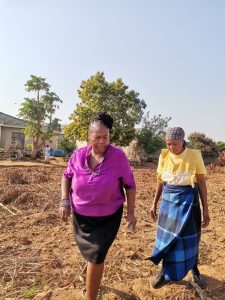
Many people are waking up to indigenous foods, and we've seen many chefs within the culinary spaces that are embracing indigenous ingredients. When people have tasted the foods they've eaten in a lovely restaurant, it encourages them to ask, where do I buy this?
The challenge we have in South Africa, and I don't know how prevalent this is in other African countries: but if people grew up poor eating indigenous foods, they associate them with poverty. So, when you've got a job or a business, you are not going to be eating those foods; you are going to be eating your creamed spinach and brussel sprouts. And not foods that remind you of a time when you didn't have options. When people say,' I have bad memories of these foods, plus I ate too much while I was growing up.' My question is, 'So, do the Chinese ever get tired of eating fried rice and noodles? If they don't, why are you getting tired of eating your own food? The Italians never get tired of eating pasta, but they've been eating it from infancy. You go to India, people are eating Indian food.
We are eating things that don't have nutritional value or very little nutrients, and we are missing out on a lot of the nutrient-dense stuff that is good for us, that our DNA actually can process. A lot of people find that they are gluten intolerant. But they're not even aware, and they're busy eating bread made of wheat. And yet there are things like your cassava flour bread that they could be using and teff flour, that's gonna be gluten-free. There is less resistance and a quicker uptake once people know what some of these food items are good for. And it's part of us depoliticising the food because in South Africa, having lived deep under apartheid with people being segregated and living according to their different ethnic groups, people would say no to foods that other ethnic groups would eat. Once people know the health benefits, people are willing to embrace the foods. 
The introduction of malls in a lot of areas has made people think that their food can only come from a mall. They are being seen as a one-stop shop for everything. The pension sales points, where people receiving government grants would go once a month to receive their pension, were kind of neighbourhood markets. People would set up with an umbrella, which is not happening now with the automation of the system. We don't see those outlets where people can go out and buy. The sad thing is that neighbourhood markets are in the affluent areas not in the townships or settlements. What you are going to find are plaza shops that are not big on fresh food.
I would like to see more neighbourhood markets developing in different areas. I would like to see more people growing their own food. Literally, people being able to feed themselves and sell the excess to their neighbours and for us to broaden the basket of what we are eating.
I think we must eat our medicine. If you do not eat your medicine, if your food is not healing you, if your food is not nourishing, you are gonna spend the rest of your life on supplements. And if you are eating two or three meals a day, and yet you've got this medicine cupboard or your handbag full of medication, then there's something wrong with what you are eating. So change your diet and look at making it more indigenous. All the lifestyle diseases we have result from what we eat. You look at child obesity rates, auto-immune diseases, the increase in autistic cases and ADHD and all the other ailments people have. All of those things, you can actually trace them back to what people are eating. 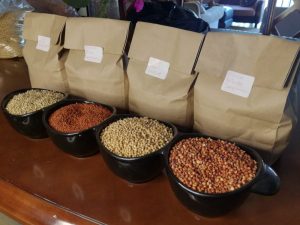
What drives me is getting people to connect and rekindle some of their childhood memories. When they walk through our fields and see what we are growing, it reminds them of their great grandmothers, their grandmothers, and their childhood growing up in whatever part of the country or the continent. When you see that spark, when somebody's face lights up and says,' Oh yeah, I know those beans. I don't even remember the last day I ate them. 'or 'Oh no. My Granny used to..., or when somebody says, you know what, the last time I ate this was when my mom was still alive.’ That just makes me so happy. To be able to say, I am really getting somebody to be in charge of their true self, with their emotions, because we have become a society where we are kind of burying our memories and just being on autopilot.
Personally, I've been able to reconnect. I've been able to get certain smells that remind me of something that happened while I was below the age of 10. It's just been that journey where I remember who I am and what I've missed or what I've lost and what I'm actually now recovering. I wouldn't trade my life for anything right now. I keep on saying, I think I had the perfect midlife crisis. and it sent me into farming.
The African woman whose legacy has changed my life: Wangari Maathai
This is the story of the African woman who made me love the environment. Her story inspired me to pursue a career in environmental and climate justice, and it also inspired me to pursue my dreams, irrespective of the societal limitations placed on my skin colour and gender.
Wangari was born in Kenya on April 1st, 1940, during British colonial rule. Her family was of Kikuyu origin, and her father was polygamous. As a child, Wangari, was given a small plot of land to grow her own food and to learn how to cultivate the land. She completed her primary and secondary education in Kenya. In 1960, she received a scholarship to commence her university studies in the United States of America, where she received a Bachelor's and a Master's degree in Biological Sciences. In April 1966, after returning to Kenya, Wangari met her future husband, Mwangi Mathai, a politician. The two got married in May 1969.
From 1966 to 1982, Wangari Maathai was a lecturer at the University of Nairobi, and in 1971, Wangari received her Doctorate in Veterinary Anatomy from the University of Nairobi, becoming the first woman in eastern Africa to receive a PhD.
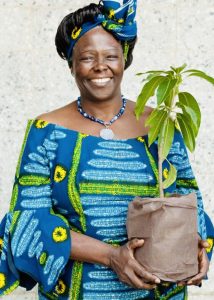 In 1977, Wangari and her husband got divorced. Soon after that, Wangari was imprisoned because she publically contested the judge's ruling regarding her divorce. As this ruling was in favour of her ex-husband and it shamed her for being a woman in need of a divorce. As a result, the judge ordered her to stop using her former husband's last name. In defiance of the judge, she changed the spelling of her last name, adding an "a" and becoming Wangari Maathai. That same year, she founded the Green Belt Movement. This grassroots environmental non-governmental organization planted over 30 million trees across Kenya over the next three decades. This movement became a successful platform for women's empowerment (especially for rural women in Kenya). As a result, she became known as Africa's Mother of Trees.
In 1977, Wangari and her husband got divorced. Soon after that, Wangari was imprisoned because she publically contested the judge's ruling regarding her divorce. As this ruling was in favour of her ex-husband and it shamed her for being a woman in need of a divorce. As a result, the judge ordered her to stop using her former husband's last name. In defiance of the judge, she changed the spelling of her last name, adding an "a" and becoming Wangari Maathai. That same year, she founded the Green Belt Movement. This grassroots environmental non-governmental organization planted over 30 million trees across Kenya over the next three decades. This movement became a successful platform for women's empowerment (especially for rural women in Kenya). As a result, she became known as Africa's Mother of Trees.
Wangari was imprisoned several times in the 1980s for criticizing Kenyan President Daniel Arap Moi and for demanding multi-party elections in Kenya. She stood for environmental justice due to new construction developments that endangered the environment and indigenous peoples' rights. Furthermore, in 1992, Maathai ran for president on a platform urging environmental protections. And at that time, she was the first African politician to embrace that cause publicly. She withdrew from the elections but ran again in 1997. In 2003, she founded the Mazingira Green Party of Kenya and later that year, she was appointed Assistant Minister for Environmental and Natural Resources by Kenyan President Mwai Kibaki. 
In 2004, Maathai won the Nobel Prize for her work in protecting the environment through political lobbying and reforestation initiatives. These initiatives were aimed at empowering rural women in Kenya. This was an outstanding award as it's prestige helped put environmental rights on the map.
In 2006, she was one of the founders of the Nobel Women's Initiative, an organization of six women recipients of the Nobel Prize, representing North and South America, Europe, the Middle East, and Africa, who united in their efforts to work for peace, justice, and equality throughout the world. In January 2007, Maathai hosted the Global Young Greens conference in Nairobi, which some have described as a meeting of the next wave of the leadership of the world environmental movement. In addition, Maathai wrote four books, including "The Greenbelt Movement: Sharing the Approach and the Experience".
At 71, Wangari Maathai died from complications from ovarian cancer treatment at a Nairobi hospital.
But her legacy lives on!
Today millions of women like myself have gained inspiration from her story and aim to share this story with many people. Her passion, resilience and approach to environmental rights and gender equality contributed significantly to my career path. I am forever grateful!
Source for refernace:
The founder of the Green Belt Movement and the 2004 Nobel Peace Prize Laureate
Photo 1 and photo 2 credit: Pinterest
When climate change impacts African women, it also affects me as an African woman
My name is Ms Rosemary Olive Mbone Enie. I am a Cameroonian Geologist, Environmentalist, Social Environmental Entrepreneur (SEE), Eco-communities Builder, Gender and Childhood Ambassador. I was born on the 27th August 1966 in Victoria South West Region of Cameroon.
Victoria, now called Limbe, is a seaside town by the banks of the Atlantic Ocean. While growing up, we had several clean flowing rivers, which took its source of the ranges of the majestic Mount Cameroon through the rocky volcanic terrain into the Atlantic Ocean. Back in the youthful days' rainfall was stable, farmers had specific reasons to plant their crops, and the yields were moderate. The town of Victoria (Limbe) was full of trees and plantations of Oil Palm owned by the Cameroon Development Corporation (CDC) and other local farmers. The city's average temperature was moderate, and Victoria was a liveable city with an average population size.
For the past 50 years, there has been a rapid change in the development of the city of Limbe. The population has grown so fast, hitting over 500,000 inhabitants. They felled many trees to build houses. The city's average temperature has become very hot, especially in the long dry season. Rainfall is very erratic, which sometimes extends to October and November. Many rivers and streams dry out during the rainy season giving rise to water shortages within the communities. Farmers have resorted to using chemical fertilizers to improve their yields, which harms the community's health. Like many African countries, Cameroon faces the challenge of Water Security, food security, loss of biodiversity, etc. My country is already facing consequences of climate change, including an abnormal recurrence of extreme weather phenomena such as violent winds, high temperatures and heavy rainfall, which endanger communities' ecosystems and the services they provide.
For the past 30 years, I have been taking practical actions to address Water, Sanitation, Hygiene, Environmental Education and Management activity across Africa. As a result, I had the opportunity to work with women and youth groups in Cameroon, Nigeria, Ghana, Liberia, Tanzania, Kenya and Rwanda. I kick-started several Pan African initiatives to address environmental and climate change challenges in Africa. I received a scholarship to study Ecovillage Design Education at UNESCO in Germany. It led me to initiate the Pan African Eco-communities Network (PEN) Initiative to transition 55,000 traditional African villages into Ecovillages. In addition, I started the Tunza Afrika Program (TAP) in 2015, which continues to engage, promote and support the interest of young people in water, environment, energy, food, science and technology issues within the formal non-formal educational sectors across Africa.
Climate change poses a unique and general challenge within Africa and at the global level. It concerns everyone on planet Earth. The people likely to suffer most from the impacts of climate change are the Most Vulnerable Groups (MVGs), those least responsible for causing it. It is widely recognized that developing countries are expected to suffer more from the devastating effect of climate change. For example, the African continent is responsible for 3.8 per cent of global CO2 emissions, yet the impact of climate change will be unfairly devastating.
For over 25 years, I have been working in the Gender and Development Sector and 21 years following the International Climate Change Negotiation. Women are particularly affected by the dramatic changes in climate patterns. Women living in poverty are the most threatened by the dangers that stem from global warming. For example, in 1991, when a cyclone and flood severely affected Bangladesh, the death rate was almost five times as high for women as for men. This was also obvious during the Tsunami that hit South-East Asia in 2006, where most victims were women.
Due to the existing gender inequalities, the different roles in society and the division of labour, women and men are not equally exposed to climate change impacts. They do not have the same adaptive capacities. We must acknowledge these differences in vulnerability and adaptive opportunities to ensure the success of adaptation measures. Furthermore, if we consider the gender perspective in communities across Africa, we will avoid further gender inequality.
A gender perspective is often overlooked in debates about climate change across Africa; it is high time to change this with COP 27 in Cairo, Egypt!
Gender analysis is crucial to understand better the impacts of climate change on human communities, particularly food security, access to natural resources, such as water, firewood, and health. Simply because women are often primarily responsible within the family for these tasks. In African countries, the women fetch and carry water at great distances to meet the needs of their village communities. They labour every day, without pay, to grow enough food for their families and communities.
Women can be real agents for change in their homes, their communities, and society as a whole in the continent of Africa. They can take over new renewable forms of household energy, such as biomass, biogas, solar. They can tackle climate change as consumers, as an educator. Their specific role in educating their children can promote behavioural change in human or economic, cultural, social and environmental activities.
When climate change impacts African women, it also affects me as an African woman!
Mpho Mogodiri is Celebrating our Indigenous Heritage
We really need to reconnect with our roots to nature and listen to the elders around the world. I call them living libraries because they actually know most of the things that we don’t know. They have this knowledge, but they don’t know who to share this knowledge with. It’s because we are not asking them about these things. It’s something that I’m trying to spark with my business. To say, ask your grandmother about this, ask your grandfather about this, ask your elder about this and let there be a bit of information sharing. My grandmother would share her stories around fruits. For example, the wild sour plum. Those are the things she would talk about. I feel that knowledge like hers should be preserved somehow. 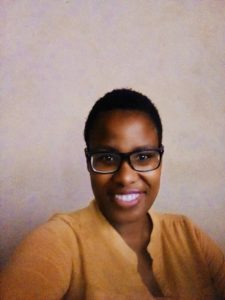
People don’t go into the wild as much as they used to. There’s a lot of activities to do now. There’s a TV in every home. There’s PlayStations, there’s Twitter, Facebook and so on. For us, when we wanted to play, we would go foraging and people are no longer interested in foraging. And if people are not interested in something, it loses its value.
I got introduced to foraging by my grandmother. I grew up in the Northwest, in a village called Seolong. We would go foraging with my grandmother and also with friends. It was actually fun to do it. I think it was a great, formative period. It’s a part of who I am. It’s a part of my identity and culture. I believe right now we are losing this knowledge which forms a great part of who we are.
The impact that starting my business had on me is that I really had to connect with my childhood again. Not only that but it’s also taught me that challenges in life are seasonal like the items we would forage. I appreciate nature more. I get to impact other people’s lives because when I go foraging, now, I go with a group of young people. They teach me about these fruits because some of them have been doing this their whole lives. Now they are paid for that knowledge and skill and they get to be paid through me. I get to put food on somebody’s table. It has impacted me that I’m doing good. I’m sharing my gift with other people. I’ve learnt to really listen to the ingredients and just go with the flow. It has shown me a different Mpho. 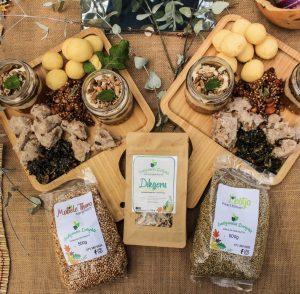
At Indigenous Delights, we produce luxury food, such as jams and chutneys, made out of indigenous, raw products. We exclusively source our raw material from women and youth in the villages in the Limpopo province. We do this to ensure that we provide a way of earning income for women and youth, and also to ensure that the materials we get are indigenous to that area and are collected sustainably.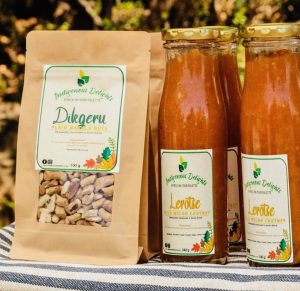
I wanted to make something that I grew up loving, indigenous delights, into modern food. There’s a certain stigma that comes with some indigenous fruits that I grew up eating. I ate that a lot when I was young because we had nothing else to eat. So, some of the foods are seen as poverty foods. We’re trying to break through that stigma.
Evolving to me means growth. It means pushing boundaries. Knowing that fear is there, but saying to the fear, 'I acknowledge you, fear, but I'm not gonna let you paralyze me'. Evolving means chasing your dreams the only way you know how. Evolving is also growth in terms of knowing yourself and making things happen for yourself and for those that are around you. It’s about opening the door for those who come after you.

